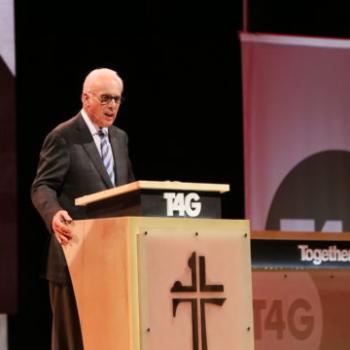This post is part of a series walking through the second volume of Abraham Kuyper’s Common Grace
At the beginning of this chapter, Kuyper reviews the subject matter of previous chapters and, important to our current moment, gives us a note about how a society can (should!) reply to the outbreak of a pandemic (even a pandemic from Asia–though unfortunately Kuyper does seem to mean that in racial terms, rather than just in terms of geography..).
“We may not only do so [resist the effects of the curse]; we must do so. Those who fail to do so fall short in the discharge of their duty, and their failure to do so becomes sin. Indeed, when illness befalls us, not combating that illness is and remains a sin against the sixth commandment. There is therefore nothing reckless in our language if–at the outbreak of some virus among men, animals, or plants–we speak of taking measures against it and even of taking measures to arrest and eradicate it if it has reached the proportions of a national disaster.” (590)
So we may–must–resist sin and its effects. But what about taking preventative measures? Is that allowed? Isn’t that at least resisting God, even if resisting the effects of sin once they have begun is not sinful? Can we, say, quarantine things from Asia temporarily? (Again, with those unfortunate racial overtones… pg 591)
First, we must condemn the thought that we can resist God–especially when uttered by doctors or politicians: “What’s more, any politician or medical expert who even entertains such a thought while considering his responsibilities profanes the living God and, in so doing, sins greatly.” (591) Obviously there is such a thing as presumption, such as thinking that we can eliminate all disease. We must also not tie the intent to the action–someone may resist a disease and either intend to glorify God or not, or even be indifferent to the matter. The effectiveness of the efforts comes from God apart from our motivations. We see this in God’s orders for resisting leprosy–a disease He brought to Israel and which He fights–Scripture is clear here. Nor are these minor requirements. They are careful and thorough. Some also include prevention, so we too may work to prevent things in our society. In fact, failure to do so may be disobedience, depending on the individual case.
Nor can we falsely divide evils into “ordinary” (which may be resisted) and “extraordinary” (which must be submitted to). Certainly this is a reasonable distinction in one sense–but not in the sense that “ordinary” misfortunes somehow don’t come from God. They all come from God, and so both may be prepared for. That is, we may prepare for both ordinary flooding and extraordinary lightning strikes through dikes in terms of the former and lightning rods in terms of the latter.
We must not fall into the Anabaptist dualism that breaks the world into two realms. God uses His established natural means to bring misery, and He uses established means to reveal the means of alleviating suffering–especially through science. We must use these means and praise God for them.
Dr. Coyle Neal is co-host of the City of Man Podcast an Amazon Associate (which is linked in this blog), and an Associate Professor of Political Science at Southwest Baptist University in Bolivar, MO













